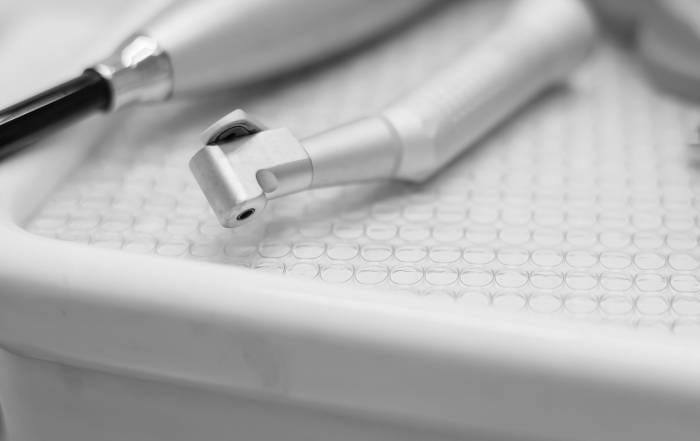A common cause of tooth wear, bruxism isn’t something to ignore. Bruxism (BRUK-siz-um) is a condition in which you grind, gnash or clench your teeth. If you have bruxism, you may unconsciously clench your teeth when you’re awake (awake bruxism) or clench or grind them during sleep (sleep bruxism). Sleep bruxism is considered a sleep-related movement disorder.
In some cases, chronic teeth grinding can result in a fracturing, loosening, or loss of teeth. The chronic grinding may wear teeth down to stumps. When these events happen, bridges, crowns, root canals, implants, partial dentures, and even complete dentures may be needed.
Not only can severe grinding damage teeth and result in tooth loss, it can also affect your jaws, cause or worsen TMD/TMJ, and even change the appearance of your face.
What causes bruxism?
Although sometimes caused by stress and anxiety, it’s far more likely that your bruxism is caused by an abnormal bite or missing/crooked teeth. If you suspect you’ve been grinding your teeth at night, notice it during the day, or see that your teeth are chipping and wearing, book an appointment with us to work on a solution.
How do I know if I grind my teeth?
As mentioned, more severe cases will result in grinding/clenching during the day, which you will likely notice. But because it often occurs during sleep, many people have no idea they’re causing excess wear on their teeth. A dull, constant headache or sore jaw when you wake up is a telltale symptom of bruxism. Many times people learn that they grind their teeth by their loved one who hears the grinding at night. If your teeth are sensitive to hot or cold, or if it is too tender to chew on one or more of your teeth, bruxism is likely the culprit. Bruxism is one of the biggest triggers of tooth-nerve hypersensitivity. If you suspect you may have bruxism, our skilled team can examine your mouth and jaw for the telltale signs. These include jaw tenderness, abnormally large jaw muscles (masseters), and excessive wear on your teeth.
What can I do to protect my teeth?
There are a few options when dealing with bruxism. The first, and arguably most important, is to protect your teeth. There are a few options to protect against and prevent bruxism:
-
A night guard is one way to defend against excessive wear from grinding at night. A night guard is an appliance that we put in our mouth before bed, and take out in the morning. They are custom made to fit on your upper teeth, and are designed to connect nicely against your lower teeth, eliminating the triggers that cause our nerves to fire our grinding reflexes.
-
Orthodontic alignment of your teeth. Often, if our upper and lower teeth are not connecting properly, a brain-stem level reflex (i.e. not something we have conscious control over) triggers bruxism. Moving our teeth into ideal relationships with one another, through orthodontic movement, can minimize and eliminate our grinding habits. In our office, we use clear aligner therapy (Invisalign) to orthodontically improve our patients’ bites. The goal for us is better function, and healthy teeth that last a lifetime. Interested in learning more about Invisalign? We have a blog post detailing the process.
-
Botox therapy. If you are aware of daytime bruxism, nighttime bruxism, or other symptoms that inform you that you are grinding, we can provide predictable relief using botox. Botox therapy for bruxism involves relaxing the muscles responsible for the habit. Botox therapy does work quite well, at temporarily suspending the habits of bruxism. The effects of botox therapy are reversible, so the treatment needs to be repeated every 4-6 months to provide long-term relief. To learn more about Botox, check out our blog post.
If stress is causing you to grind your teeth, ask your doctor or dentist about options to reduce your stress. Attending stress counseling, starting an exercise program, or seeing a physical therapist, are non-dental therapies that can help minimize bruxism habits.
If a sleeping disorder is causing the grinding, treating it may reduce or eliminate the grinding habit.
At Toothworks Dentistry, botox therapy, Invisalign treatment, and nightguards are the 3 most common treatment options provided if bruxism habits are causing issues for our patients. If bruxism is a habit you suspect or know you are doing, we can help!
Call or email our office to book an appointment to get started.
Yours in better dental health,
Toothworks Dentistry





